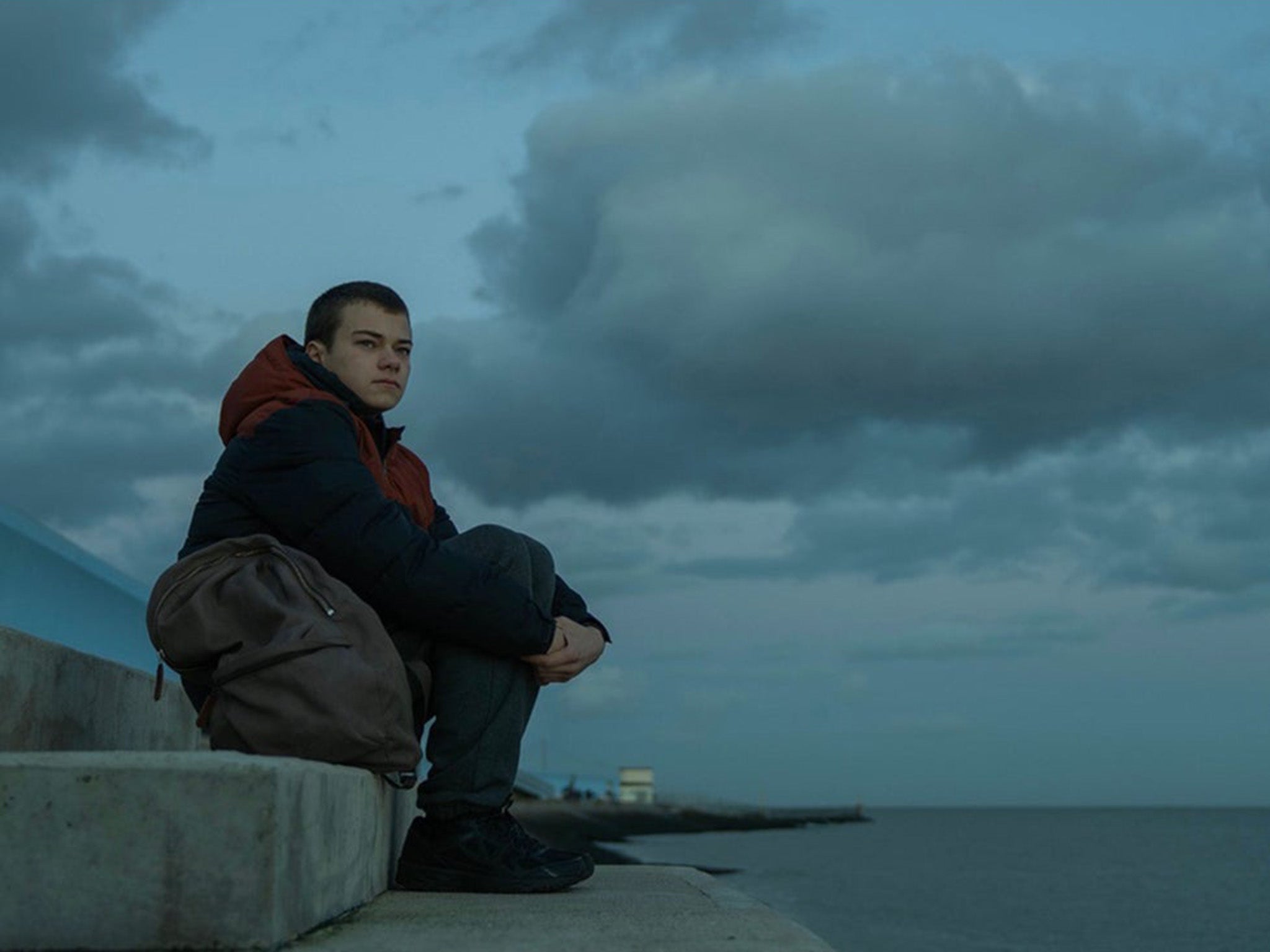County Lines star Conrad Khan: ‘I don’t think I’ve ever shouted at anyone – it was challenging to get into a violent headspace’
The 20 year old astonished audiences with his empathetic portrayal of a drug mule in the brutal social-realist drama ‘County Lines’. He tells Ellie Harrison about his unlikely path into acting and getting the truth across in ‘tough’ and ‘awkward’ scenes


Your support helps us to tell the story
From reproductive rights to climate change to Big Tech, The Independent is on the ground when the story is developing. Whether it's investigating the financials of Elon Musk's pro-Trump PAC or producing our latest documentary, 'The A Word', which shines a light on the American women fighting for reproductive rights, we know how important it is to parse out the facts from the messaging.
At such a critical moment in US history, we need reporters on the ground. Your donation allows us to keep sending journalists to speak to both sides of the story.
The Independent is trusted by Americans across the entire political spectrum. And unlike many other quality news outlets, we choose not to lock Americans out of our reporting and analysis with paywalls. We believe quality journalism should be available to everyone, paid for by those who can afford it.
Your support makes all the difference.A worn-out mother throws her 14-year-old son’s games console to the floor. “You’re a f***ing lazy pig,” he snarls at her. Before long, he’s slamming her against the wall and headbutting her face with almighty force. “I don’t understand who I’m speaking to,” she whimpers, collapsing to her knees.
This is one of many desperate, harrowing moments in County Lines, Henry Blake’s brutal social-realist drama. It stars Conrad Khan as Tyler, a watchful loner who is groomed to become a drug mule for a London gang. It’s a process that gnaws away at his innocence and identity and threatens to shape him into an abuser in turn.
“I’m not a very angry person,” says Khan. He certainly doesn’t seem it. Speaking over Zoom from his parents’ house between lectures (he’s studying film at Queen Mary University of London), the 20 year old is reserved, his answers cautious and contemplative. It takes a little coaxing to get him to open up. He is slight, and his hair has just grown back from the “rabid, scruffy haircut with lots of scars and cuts in it” that he was given for his upcoming role in Peaky Blinders.
“I don’t think I’ve ever shouted at anyone in my life,” he continues. “So to get into that kind of headspace and not just be angry, but be violent, and not just to anybody, but to the maternal, loving figure in your life – that was challenging.” The scene took six hours to get right. “Henry was there to push me and say, ‘More, we need more,’” recalls Khan. “Or sometimes less.”
The term “county lines” is shorthand for the practice of targeting vulnerable children in cities and using them to traffic drugs out to towns and rural areas, before shuttling the resulting money back. Blake, a former social worker, was moved to tell their story after witnessing the human toll of county lines first-hand. In his film, Tyler’s single mother Toni (Ashley Madekwe) works nights as a cleaner. When bullies steal Tyler’s chips in a chicken shop, local hard-man Simon (Harris Dickinson) steps in to defend him. Tyler notices his flashy car, nice watch and expensive trainers. When Toni loses her job, Tyler starts running “errands” for Simon. Before long, he is wrapping heroin in cling film, coating it in Vaseline, and inserting it inside himself to carry on the train to Essex.
Khan, who was 18 when the film was shot, gives an extraordinarily empathetic performance as Tyler. He was chosen out of 300 boys by Blake and casting director Aisha Bywaters, who spotted an emotional intelligence and conscientiousness in him. As Tyler, he deftly transitions from a pensive, gentle child, who hugs his little sister as she leaves for school, into a boy whose hard stare blisters through the screen. Partway through the film, something inside him snaps off, comes undone.
The young actor is brave, too. In the scene with the clingfilm-wrapped package, he strips naked and the camera rests on his toes, which curl as he groans with pain. “I’d never done a scene like that before, but they put a lot of care and effort into making sure I felt safe on set,” says Khan. “It was only the director and the cinematographer in the room and the respective people who needed to watch it. It was a tough and slightly awkward thing to do but all in the name of telling the truth for children who do exactly the same thing. I’m just an actor, but those scenes are based on real life.” On set, Blake told Khan that “action” and “cut” were his safe words, something that children who are exploited never hear.

Khan, who grew up just 20 minutes from the chicken shop where Tyler meets Simon, took an unlikely path into acting. “It was a bit of a fluke accident,” he says. “I was house-sitting in Muswell Hill and I needed a haircut. I went to the barber’s and we got chatting.” The barber told Khan he used to style hair for actors, and that he could put Khan in touch with an agent he knew. “I’d been going to a youth theatre group in Dalston, so I was acting a little bit. I thought, ‘Why not?’”
Just like the barber must have done, the agent saw something in Khan. He went on to star as the young Chris Hemsworth in the 2016 fantasy epic The Huntsman: Winter’s War and as a teenage cyclist who nearly gets run over by Andrew Scott in Black Mirror. He’s now nominated for the EE Rising Star Award at the Baftas for County Lines, a prize that’s predicted the success of Daniel Kaluuya and Tom Holland. BBC dramas Baptiste and Peaky Blinders are next. Has he gone back to tell the barber? “No,” he says a little sheepishly. “I don’t find myself in Muswell Hill very often.”
He may have grown up a stone’s throw away from Tyler’s world in north London, but Khan – whose father works in health policy and whose mother is a lecturer in fashion – says he and Tyler don’t have a lot in common. “I had quite a nice time at school compared to him. He comes from a single-parent household and feels that he is the one, at 14 years old, who needs to provide for his family. I have two loving, caring parents who are there to provide for me.”
Khan does, however, understand Tyler’s desire to be the breadwinner. “I feel that too,” he says. “I’m sure lots of young men do, as well as having that want to find a place in society and find self-worth.”

The final title card of County Lines tells us that about 10,000 children, some as young as 11, are used as drug runners in the UK. Before it was pushed out of the headlines by Covid, this crime phenomenon was an urgent national issue. “It’s frustrating,” says Khan of its disappearance from public discourse. “The county lines networks have adapted and have not stopped even under the circumstances of a global pandemic. Outreach work, for vulnerable young people, has got worse and has become harder. Covid restrictions have put more vulnerable people and children at risk.”
Khan first heard about county lines through music. “The way rappers talk about it is pretty violent,” he says. “I think people are quick to suggest they over-glamourise such topics, but they don’t. They don’t shy away from the vulgarity of it.”
Neither does County Lines. And while the film has the odd glimmer of humour and hope, it leaves us in no doubt that Tyler is one child in a long line of nameless victims. “I can only hope someone who’s gone through this and who has seen the film thinks we told their truth,” says Khan. “Or at least part of it.”
County Lines is available on BFI Player and also for a limited time via Cambridge Film Festival at Home. Their Youth Lab presents a pay-what-you-can online screening from Friday 26 March at 6pm. Available for 6 days, until Thursday 1 April. Book now at this link.
Public voting for the EE Rising Star Award is now open at ee.co.uk/BAFTA and the winner will be announced at the EE British Academy Film Awards on Sunday 11 April 2021.
Join our commenting forum
Join thought-provoking conversations, follow other Independent readers and see their replies
Comments